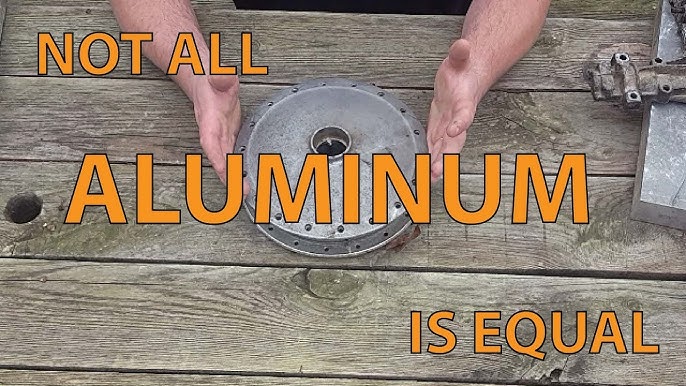Some Ideas on Stahl Specialty Company You Need To Know
Some Ideas on Stahl Specialty Company You Need To Know
Blog Article
Excitement About Stahl Specialty Company
Table of Contents7 Easy Facts About Stahl Specialty Company DescribedFascination About Stahl Specialty CompanyThe Only Guide to Stahl Specialty CompanyGet This Report about Stahl Specialty CompanyThe Stahl Specialty Company PDFs
Chemical Contrast of Cast Aluminum Alloys Silicon promotes castability by decreasing the alloy's melting temperature and enhancing fluidness during spreading. In addition, silicon adds to the alloy's toughness and wear resistance, making it important in applications where sturdiness is crucial, such as automobile parts and engine components.It additionally boosts the machinability of the alloy, making it much easier to refine right into finished products. This way, iron adds to the overall workability of light weight aluminum alloys. Copper enhances electrical conductivity, making it useful in electrical applications. It likewise boosts rust resistance and contributes to the alloy's general stamina.
Manganese contributes to the strength of aluminum alloys and enhances workability. It is generally made use of in functioned light weight aluminum items like sheets, extrusions, and accounts. The existence of manganese aids in the alloy's formability and resistance to fracturing throughout construction procedures. Magnesium is a lightweight component that provides toughness and effect resistance to light weight aluminum alloys.
It permits the production of light-weight elements with exceptional mechanical homes. Zinc improves the castability of aluminum alloys and helps regulate the solidification procedure during casting. It boosts the alloy's toughness and solidity. It is typically found in applications where intricate shapes and fine details are needed, such as ornamental spreadings and particular automobile parts.
The Facts About Stahl Specialty Company Revealed
Due to the fact that aluminum-silicon alloys have great casting homes, high gas properties, simple processes, and exceptional rust resistance, aluminum-silicon alloys are most typically used in the die-casting market at home and abroad. At the same time, aluminum-silicon alloys are also relatively early and widely identified alloys developed and used in die-casting. After constant research and improvement, most of the current global mainstream aluminum-silicon alloys have been settled and are nothing more than A356, A360, A380, ADC12, B390, and A413.
The key thermal conductivity, tensile toughness, yield toughness, and prolongation differ. Amongst the above alloys, A356 has the highest thermal conductivity, and A380 and ADC12 have the lowest.

Stahl Specialty Company Fundamentals Explained
In accuracy spreading, 6063 is appropriate for applications where elaborate geometries and high-quality surface finishes are paramount. Instances include telecommunication units, where the alloy's exceptional formability permits for sleek and cosmetically pleasing styles while keeping architectural honesty. In the Illumination Solutions market, precision-cast 6063 elements produce classy and reliable lighting fixtures that need intricate forms and good thermal performance.
(https://www.demilked.com/author/stahlspecialc/)
It brings about a finer surface area finish and much better corrosion resistance in A360. Furthermore, the A360 shows exceptional prolongation, making it optimal for complex and thin-walled elements. In accuracy casting applications, A360 is fit for industries such as Customer Electronics, Telecommunication, and weblink Power Devices. aluminum foundry. Its improved fluidness enables detailed, high-precision elements like mobile phone coverings and communication tool housings.

In accuracy casting, aluminum 413 shines in the Consumer Electronic Devices and Power Devices markets. It's generally used to craft intricate parts like mobile phone real estates, video camera bodies, and power tool casings. Its accuracy is impressive, with tight resistances up to 0.01 mm, making sure perfect item setting up. This alloy's remarkable rust resistance makes it an exceptional option for outdoor applications, making sure lasting, resilient items in the pointed out markets.
Stahl Specialty Company Can Be Fun For Everyone
The light weight aluminum alloy you pick will substantially impact both the spreading procedure and the residential properties of the last product. Because of this, you have to make your choice meticulously and take an enlightened method.
Identifying the most ideal light weight aluminum alloy for your application will suggest weighing a vast selection of qualities. These comparative alloy attributes follow the North American Die Spreading Association's standards, and we've divided them right into two classifications. Aluminum Casting. The initial classification addresses alloy attributes that affect the production procedure. The second covers qualities influencing the residential properties of the end product.
The alloy you choose for die casting straight impacts several facets of the casting procedure, like how easy the alloy is to work with and if it is vulnerable to casting issues. Warm breaking, additionally called solidification splitting, is a regular die spreading issue for light weight aluminum alloys that can result in inner or surface-level rips or fractures.
Facts About Stahl Specialty Company Revealed
Particular light weight aluminum alloys are a lot more at risk to hot splitting than others, and your selection ought to consider this. aluminum metal casting. It can harm both the cast and the die, so you must look for alloys with high anti-soldering properties.
Deterioration resistance, which is currently a significant feature of aluminum, can differ substantially from alloy to alloy and is an essential characteristic to consider depending on the environmental problems your item will be subjected to. Put on resistance is an additional residential property generally looked for in light weight aluminum items and can set apart some alloys.
Report this page